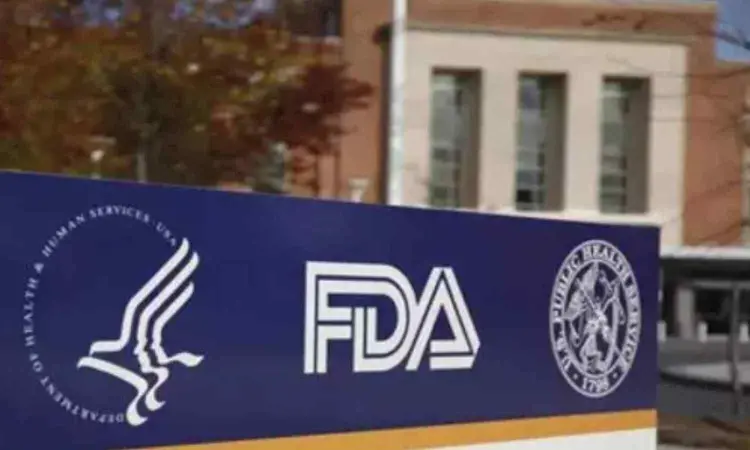- Home
- Medical news & Guidelines
- Anesthesiology
- Cardiology and CTVS
- Critical Care
- Dentistry
- Dermatology
- Diabetes and Endocrinology
- ENT
- Gastroenterology
- Medicine
- Nephrology
- Neurology
- Obstretics-Gynaecology
- Oncology
- Ophthalmology
- Orthopaedics
- Pediatrics-Neonatology
- Psychiatry
- Pulmonology
- Radiology
- Surgery
- Urology
- Laboratory Medicine
- Diet
- Nursing
- Paramedical
- Physiotherapy
- Health news
- Fact Check
- Bone Health Fact Check
- Brain Health Fact Check
- Cancer Related Fact Check
- Child Care Fact Check
- Dental and oral health fact check
- Diabetes and metabolic health fact check
- Diet and Nutrition Fact Check
- Eye and ENT Care Fact Check
- Fitness fact check
- Gut health fact check
- Heart health fact check
- Kidney health fact check
- Medical education fact check
- Men's health fact check
- Respiratory fact check
- Skin and hair care fact check
- Vaccine and Immunization fact check
- Women's health fact check
- AYUSH
- State News
- Andaman and Nicobar Islands
- Andhra Pradesh
- Arunachal Pradesh
- Assam
- Bihar
- Chandigarh
- Chattisgarh
- Dadra and Nagar Haveli
- Daman and Diu
- Delhi
- Goa
- Gujarat
- Haryana
- Himachal Pradesh
- Jammu & Kashmir
- Jharkhand
- Karnataka
- Kerala
- Ladakh
- Lakshadweep
- Madhya Pradesh
- Maharashtra
- Manipur
- Meghalaya
- Mizoram
- Nagaland
- Odisha
- Puducherry
- Punjab
- Rajasthan
- Sikkim
- Tamil Nadu
- Telangana
- Tripura
- Uttar Pradesh
- Uttrakhand
- West Bengal
- Medical Education
- Industry
FDA Expands Approval of Belzutifan for Treatment of pheochromocytoma or paraganglioma

The US food and Drug Administration (FDA) has expanded the approval of Belzutifan (Welireg) to treat specific types of pheochromocytoma or paraganglioma (PPGL) in both adults and children.
This represents the first FDA approval of an oral therapy for PPGL.
Efficacy was evaluated in LITESPARK-015 (NCT04924075), an open-label, multi-cohort trial. Cohort A1 was conducted in 72 patients with measurable disease verified by blinded independent central review (BICR) per RECIST v1.1, documented histopathological PPGL diagnosis, and locally advanced or metastatic disease not amenable to surgery or curative treatment. Patients with concomitant hypertension with adequately controlled blood pressure were required to have no change in antihypertensive medications for at least 2 weeks prior to study initiation. Patients with carcinomatous meningitis were excluded.
The major efficacy outcome measure was objective response rate (ORR) by BICR using RECIST v1.1. Additional efficacy outcome measures were duration of response (DOR) and the number of patients who had a reduction in at least one antihypertensive medication by at least 50% maintained for at least six months. ORR was 26% (95% CI: 17, 38). Median DOR was 20.4 months (95% CI: 8.3, NR). Of the 60 patients on baseline antihypertensive medications, 19 (32% [95% CI: 20, 45]) had a reduction in at least one antihypertensive medication by at least 50% for at least six months.
The most common adverse reactions (≥25%), including laboratory abnormalities, were anemia, fatigue, musculoskeletal pain, decreased lymphocytes, increased alanine aminotransferase, increased aspartate aminotransferase, increased calcium, dyspnea, increased potassium, decreased leukocytes, headache, increased alkaline phosphatase, dizziness, and nausea.
The recommended belzutifan dose for adults is 120 mg administered orally once daily. The recommended dose for pediatric patients 12 years and older is based on body weight. For pediatric patients weighing ≥ 40 kg, the dose is 120 mg orally once daily. For pediatric patients weighing < 40 kg, the dose is 80 mg orally once daily. Continue belzutifan until disease progression or unacceptable toxicity.
This review used the Assessment Aid, a voluntary submission from the applicant to facilitate the FDA’s assessment.
This application was granted priority review. FDA expedited programs are described in the Guidance for Industry: Expedited Programs for Serious Conditions-Drugs and Biologics.
Dr Kamal Kant Kohli-MBBS, DTCD- a chest specialist with more than 30 years of practice and a flair for writing clinical articles, Dr Kamal Kant Kohli joined Medical Dialogues as a Chief Editor of Medical News. Besides writing articles, as an editor, he proofreads and verifies all the medical content published on Medical Dialogues including those coming from journals, studies,medical conferences,guidelines etc. Email: drkohli@medicaldialogues.in. Contact no. 011-43720751


